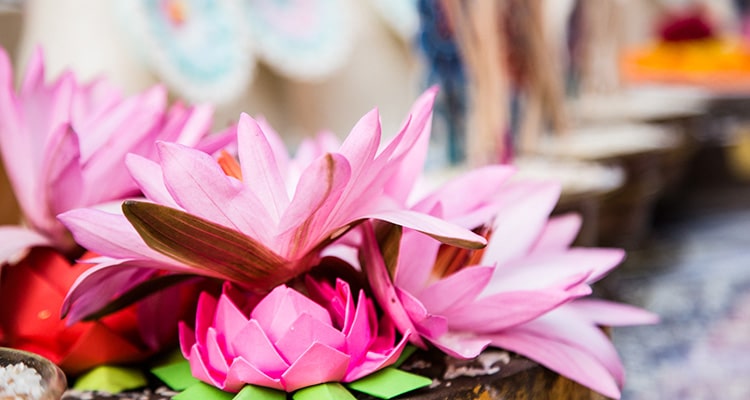Self-Compassion and How to Practice It
Category: How to Meditate | Love & Compassion Meditation

What is Self-Compassion?
Compassion is an open-hearted response to suffering. It is the instinctual desire to want to end the pain of anyone who we perceive as hurting. Meditating on compassion helps us open the heart further, so that we may apply this natural response to everyone, not just the few loved ones we are close to. Self-compassion is the act of turning this soothing energy inward, tending to our own hurt as we would hope to tend to the pain of all others.
We are often confused about what constitutes the self compassion definition. Unfortunately, too many of us believe that self-compassion is selfish. We might think self-compassion requires a ‘me-first’ focus that arises from an exaggerated sense of self-worth. On the opposite end of the spectrum, we might confuse self-compassion with its near enemy self-pity. We worry that practicing self compassion entails wallowing in negativity, feeling bad for ourselves. We might also mistake self-compassion for self-care, thinking the power of self-compassion comes from expensive spa days or extended vacations.
Genuine self-compassion is simply extending the same patience, loving-kindness, forgiveness and care to ourselves that we would extend to any other in a time of need.
A mistaken definition, however, is not the only barrier to practicing genuine self-compassion. To offer our self well-wishes in a moment of suffering, we must be willing to feel and acknowledge our pain. We must see ourselves as worthy of feeling better, and we must have the tools with which to build a compassionate response. For most of us, this necessitates practice.
How to Practice Self-Compassion
It is our true nature as human beings to be compassionate. What’s more, all human beings are equally worthy of compassion, including ourselves. Infinite causes and conditions, however, have obscured our embodiment of this truth. We may have learned from our earliest caregivers, past experience, or the culture in which we’re immersed that some people are less deserving of compassion, that it’s not ok to feel what we feel, or that we are safest when we ignore our own suffering. This too, is something we can bring compassion to.
As we practice self-compassion, it’s helpful to remember that we may not overcome our fear and discomfort with the practice overnight. It is perfectly okay, and perhaps preferred, to approach our pain little by little, from multiple angles. Integrating self-compassion exercises with meditation can soften our resistance to accepting our disquiet and directing empathy and compassion toward it.
Mindful Self Compassion
Mindful self-compassion (MSC), is a term coined by researchers Kristin Neff and Chris Germer. MSC enhances emotional well-being by combining the discernible skills of mindfulness and self-compassion. MSC recognizes that first and foremost, that we have to be aware of our pain and suffering if we are to compassionately address it.
Self Compassion Exercises
Among the most popular self-compassion exercises to arise out of the MSC program is the self-compassion break. This exercise may be done in as little as three breaths, or as a longer, more formal meditation practice. The 3-step process includes the following:
- Bring awareness to a moment of suffering. This can be done in the actual moment, or by recalling a past moment of pain or discomfort.
- Remember your common humanity. Recall there are billions of people in this world. Not one of them has lived a pain-free life. You are never alone in your pain.
- Tend to your pain as you would tend to the pain of a loved one. Imagine the advice you would give to a friend who was hurting. Offer yourself this same grace.
Self-Compassion Meditation
Meditation for self-compassion is no different than any other compassion or loving-kindness practice. The key distinction is that the object of our meditation is the self versus another. As our practice advances, however, we accept the wisdom that the self and others are interdependent. With this wisdom in mind, any practice we do to open the heart cultivates compassion for all, including ourselves. So, if practicing self-compassion feels challenging for you, rest assured that meditating on compassion for another will create enough space in the heart for you to reside there, too.






